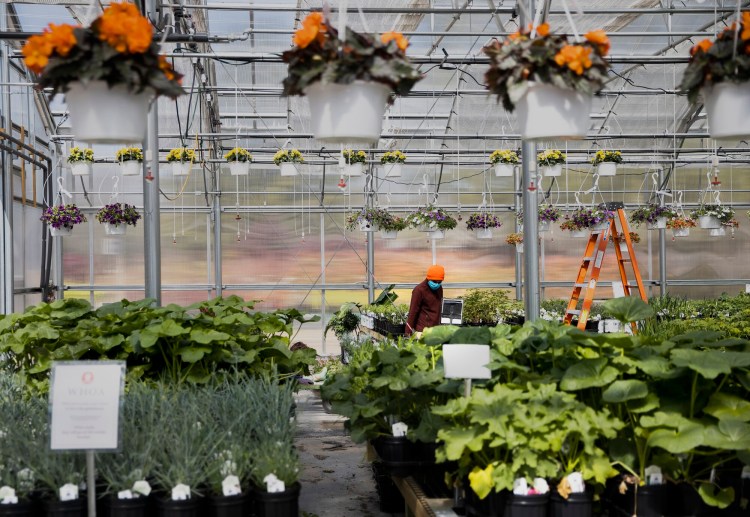Many people, including most reading this column, enjoy gardening. How many of them would like to do more gardening and get paid for it?
Participants in a program that begins Monday, sponsored and coordinated by the University of Maine Cooperative Extension, will have a chance to do just that.
Graduates of the Horticulture Apprentice Training Program could fill a big need, said Rebecca Long, an Oxford County-based sustainable agriculture and horticulture professional with the Extension.
“We’ve gotten feedback from the green industry, including nurseries, greenhouses and landscapers, that there is a need for a next generation of skilled workers,” she said.
While the University of Maine, Southern Maine Community College and other colleges offer horticulture degrees, they do not produce enough graduates for the industry. And those graduates are probably more knowledgeable about the science of horticulture than the nitty-gritty, dirty-hands work of actually caring for gardens, tending plants in a nursery and planting seeds.
The new program is more basic than the college courses, designed to produce entry-level workers who might stay in the profession for many years. This year’s class is already at its 50-student capacity, but Long said the Extension plans to start another course next fall, and the student capacity could increase if all goes well this year.
Two schools, Portland Arts and Technology High School and Skowhegan Area High School, are partnering with the program this year, with teachers at those schools assisting students and doing some teaching.
“It’s sort of going back to the days when high schools had shop class and auto-repair courses, so students had a leg up when they graduated,” Long said.
Other enrollees are students at other schools, as well as adults who are looking to switch careers or are just getting started in the work force.
Students at the two high schools attend the program for free. But the other students pay $600, plus a voluntary donation of $20 to $100 for those able and willing to support similar horticultural courses. A sliding scale for any students who need it reduces the price substantially.
The courses will be conducted online through March, taught by teachers from the participating high schools, and professionals from UMaine Extension; the Maine Department of Agriculture, Conservation and Forestry; the Maine Landscape and Nursery Association; and other lecturers.
When gardening season starts in the spring, the students will have one year to complete 200 hours of on-the-job training, either paid or volunteer, that covers specific skills needed in the horticulture industry. Long urged any organizations that would like to help train the students to get in touch, specifically plant nurseries, landscapers, vegetable- and ornamental horticulture-seedling producers, and large estates or public gardens. Vegetable farms probably would not fit as well as the other options, Long said.
Although this apprentice training program is new, it builds on and will include parts of programs the Extension already offers. The Master Gardener program, which trains volunteers to assist other gardeners, has existed for decades and is highly popular. A new program this fall is targeted at home gardeners who want to work in their own gardens. It is also full, Long said.
All of which shows that the interest in gardening, which spiked with the COVID lockdowns of 2020, is continuing. And as people continue gardening, they realize they need to learn more.
Tom Atwell is a freelance writer gardening in Cape Elizabeth. He can be contacted at: tomatwell@me.com.
Send questions/comments to the editors.


